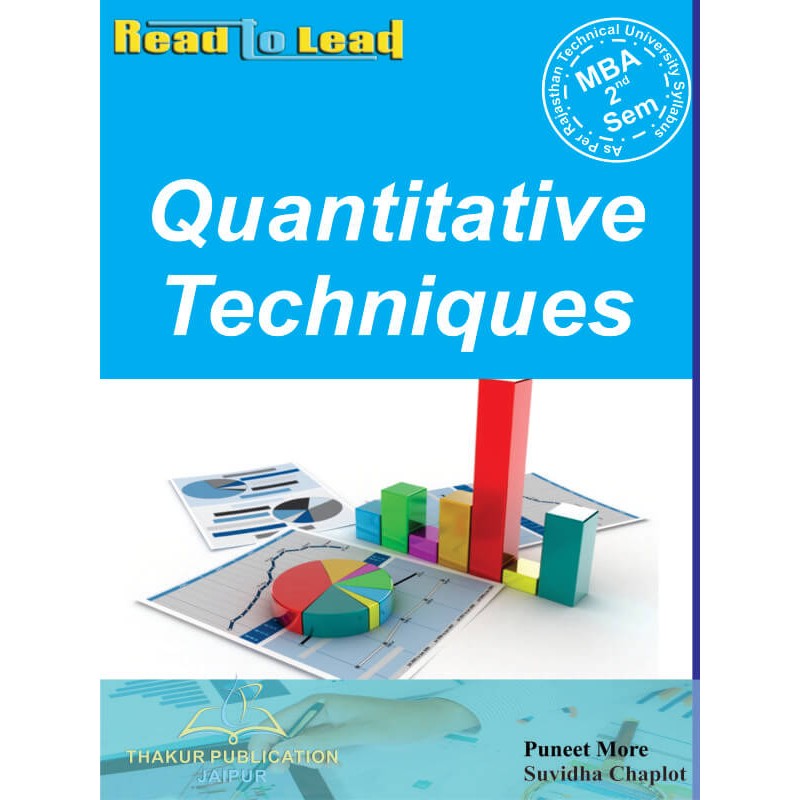




ISBN- 978-93-90972-791
AUTHORS- Mr. Puneet More, Mrs Suvidha Chaplot
Syllabus
M-203: Quantitative Techniques
SECTION-A
|
Unit |
Course Description |
Sessions |
|
I |
Introduction to Quantitative Approaches to Decision Making, Classification of Models, General Method of Solving Quantitative Models, Quantitative Models in Practice |
3 |
|
II |
Linear Programming: Structure of LP Model, Assumption, Advantages, Limitations, General Structure of LPP, Model Formulation, of LP Model, Graphical Method, Simplex Method. Application to Production, Marketing, Agriculture etc., Introduction to Duality. |
3 |
|
III |
Transportation and Assignment models: Transportation Problem, General Structure of Transportation Problem, Methods of Finding Initial Basic Feasible Solution (NWCM, LCM & VAM), Test for Optimality (MODI Method), Degeneracy, Assignment Problems, Introduction, General structure, Hungarian method of Solution, Variations of Assignment Problems: Minimization, Maximization, Unbalanced Cases and Restrictions |
3 |
|
IV |
Decision Theory: Decision-Making under Uncertainty- Maximin, Maximax, Laplace and Hurwicz criteria; Decision-Making Under Risk- Expected Value (EMV, EOL,EVPI), Decision Tree Analysis |
4 |
|
V |
Game Theory: Theory of Games- Formulation of Game Models, Two Person ZERO Sum Games & Their Solution, 2 x N and M x 2 Games, Pure Strategies With Saddle Point, Rule of Dominance, Solution Methods for Games Without Saddle Point: Mixed Strategies (Algebraic, Arithmetic, Graphical Method Only), Limitations of Game Theory. |
3 |
|
VI |
Replacement Theory: Replacement Problems: Replacement of Items that Deteriorate with Time; Replacement of items that Fail Completely; Staffing Problem. |
4 |
|
VII |
Queuing Theory: Characteristics of Single Server Queueing model, Application of Poisson and Exponential Distribution in Estimating Arrival Rate and Service Rate; Applications of Queue Model for Better Service to the Customers. (No Derivation, only Application Aspects) |
2 |
|
VIII |
Simulation: Simulation, Process of Simulation, Types of Simulation, Steps in Simulation Process, Monte Carlo Simulation, Application in Queuing, Inventory, Finance, Marketing and HR Areas, Advantages & Disadvantages. |
2 |
SECTION-B
At Least one Case Study from Each Unit. Questions will be Case/Inferences/Application Based.
Specific References
Your review appreciation cannot be sent
Report comment
Report sent
Your report cannot be sent
Write your review
Review sent
Your review cannot be sent

ISBN- 978-93-90972-791
AUTHORS- Mr. Puneet More, Mrs Suvidha Chaplot
check_circle
check_circle